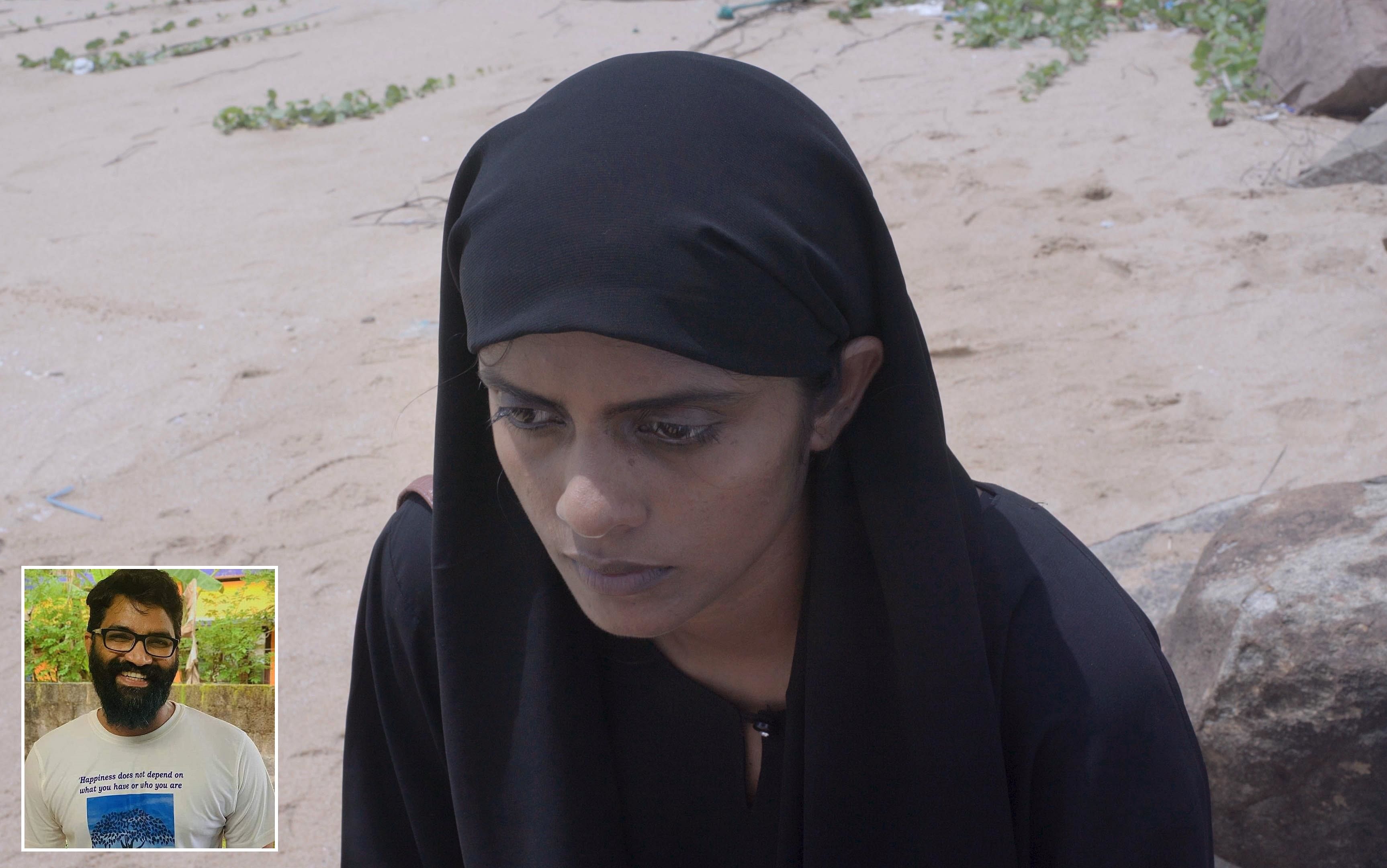
After the screening of ‘Biriyaani’ at the Bangalore International Film Festival last year, a teary-eyed woman gave director Sajin Baabu a tight hug and thanked him for making the film.
The scene reminds us of what Martin Scorsese, that maverick filmmaker, says: “Movies touch our hearts and awaken our vision, and change the way we see things.”
‘Biriyaani’, a bold film that has won a string of international awards, dropped on OTT platform Cave last week.
The Malayalam film, starring Kani Kusruti, is about a Muslim woman’s revolt against regressive practices. The film shows how women are victimised in a conservative society.
Kani, who has so far one five awards and one special mention at the National Awards, is the film’s backbone. It had a brief theatrical run in Kerala before the exhibitors backed out saying the film was too explicit.
Sajin spoke to Showtime on the making of the film and the responses it has evoked.
Excerpts:
Was it easy to get the film certified?
I had to discuss and argue with the Censor Board to retain certain sequences. I received support from a Muslim member in the board’s screening committee. Some close shots, involving violence, were removed.
Do you have solutions for the problems highlighted in your film?
It is not just Muslim women who face the circumstances shown in the film. Neither is this story an indictment of just Kerala society. The issues are universal. So films must make people question and oppose certain age-old practices. I grew up in a village. For years, we were made to believe that women are just sexual objects. It was through books and cinema that my thoughts changed. Women are writing about my film on social media. That’s an encouraging sign.
Why don’t we see more Indian films that talk about female desire?
Perhaps filmmakers are apprehensive about people’s responses. I am not sure. But films like ‘Biriyaani’ could bring about a change. After watching the film, many Malayalam directors told me they felt it was like watching an international film. So those who have similar themes in mind can look up to this film.
Is Indian cinema’s ecosystem ready for nudity on screen?
It depends on having actors who understand the demands of such scripts. We don’t have too many artistes like Radhika Apte and Kani Kusruti. It requires the audience to see cinema as a work of art. Also, we directors must clearly see the thin difference between nudity and vulgarity. The latter is something I avoided in ‘Biriyaani’.
At many international festivals, what was experts’ opinion on ‘Biriyaani’?
They were impressed with the film’s form. They felt the camera was absent and the film was a stark reflection of life. Of course, Kani’s performance received praise.
Kerala film lovers have a progressive reputation. Yet, theatre owners were afraid to screen ‘Biriyaani’…
The intolerance in the state is quite clear. Many people, some educated, called me Islamophobic. It’s unfortunate that they can’t see the film’s subjects and politics. If you question a religion’s conservatism, you will face problems even in Kerala, a state hailed for its modern attitudes.
Fighting misogyny and patriarchy...
‘Biryaani’ explores many themes simultaneously: female sexuality, misogyny, patriarchy and religious discrimination. Kani Kusruti plays Kadeeja, a high school-educated woman who lives with a husband who inflicts loveless sex on her.
She grapples with her own desire and loneliness, and her mother’s madness. Her brother is charged with terrorism, and she faces police brutality as a consequence. Eventually, she finds consolation in a never-before act of rebellion.